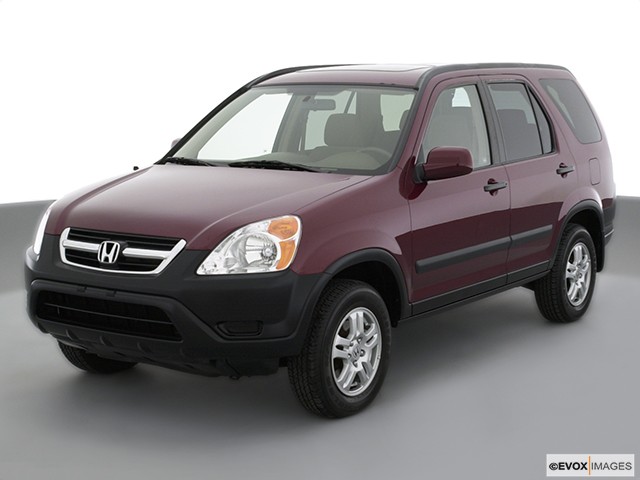2002 Honda CR-V Overview, Reviews, Ratings & Specs

Positive Owner Reviews
Negative Owner Reviews
2002 Honda CR-V Owner Reviews
Ranks #4 Compact SUV by Owners
The 2002 Honda CR-V has an average owner rating of 4.39 out of 5 which ranks it #4 of 13 other Compact SUVs.
Is The 2002 Honda CR-V A Good Car?
How Reliable Is The 2002 Honda CR-V?
Is The 2002 Honda CR-V A Good Value?
Related Articles for 2002 Honda CR-V
From the Vehicle History blog
Frequently Asked Questions
Does the 2002 Honda CR-V have a timing belt or chain?
What is the 2002 Honda CRV speed sensor location?
What is the 2002 Honda CRV pcv valve location?
What is the 2002 Honda CRV multiplex control unit location?
What is the 2002 Honda CRV fuel filter location?
Answers are provided by third parties. We do not guarantee accuracy of responses
Safety & Reliability

Overall
Front
Rollover
Side

Moderate Overlap Front
Side
Roof Strength
Driver-side Overlap Front